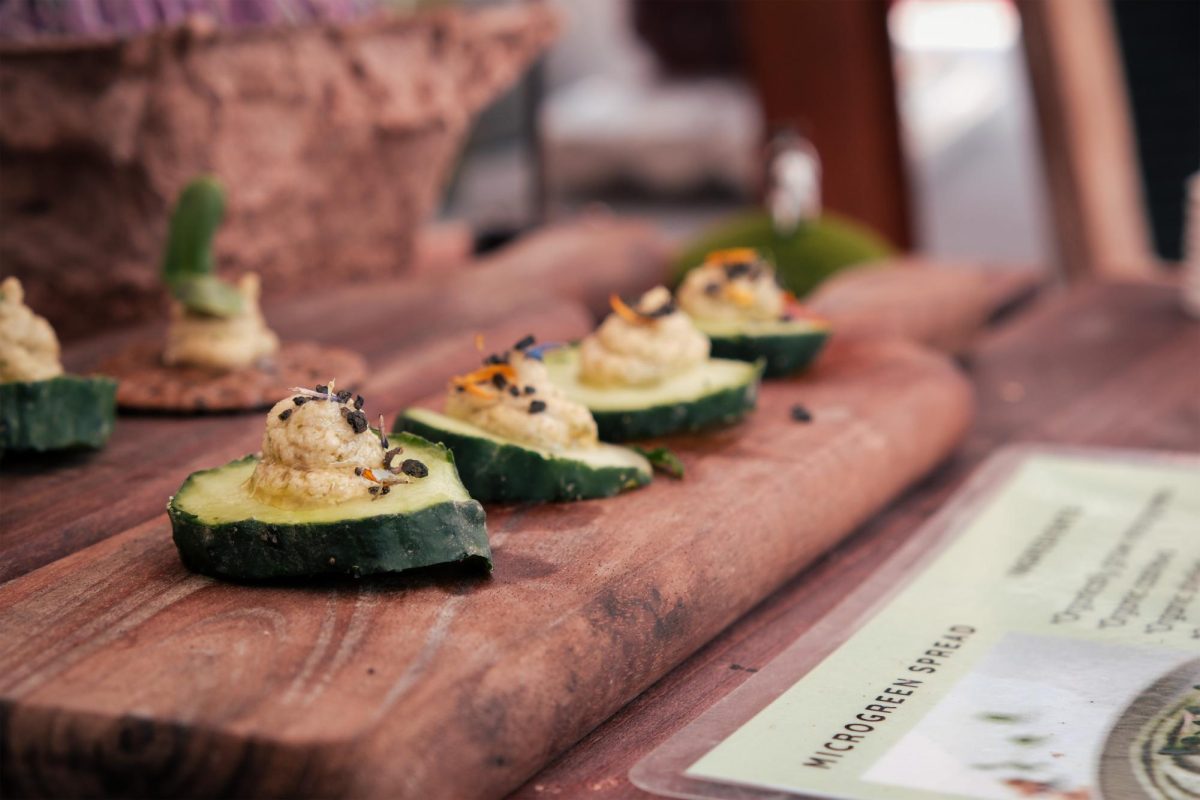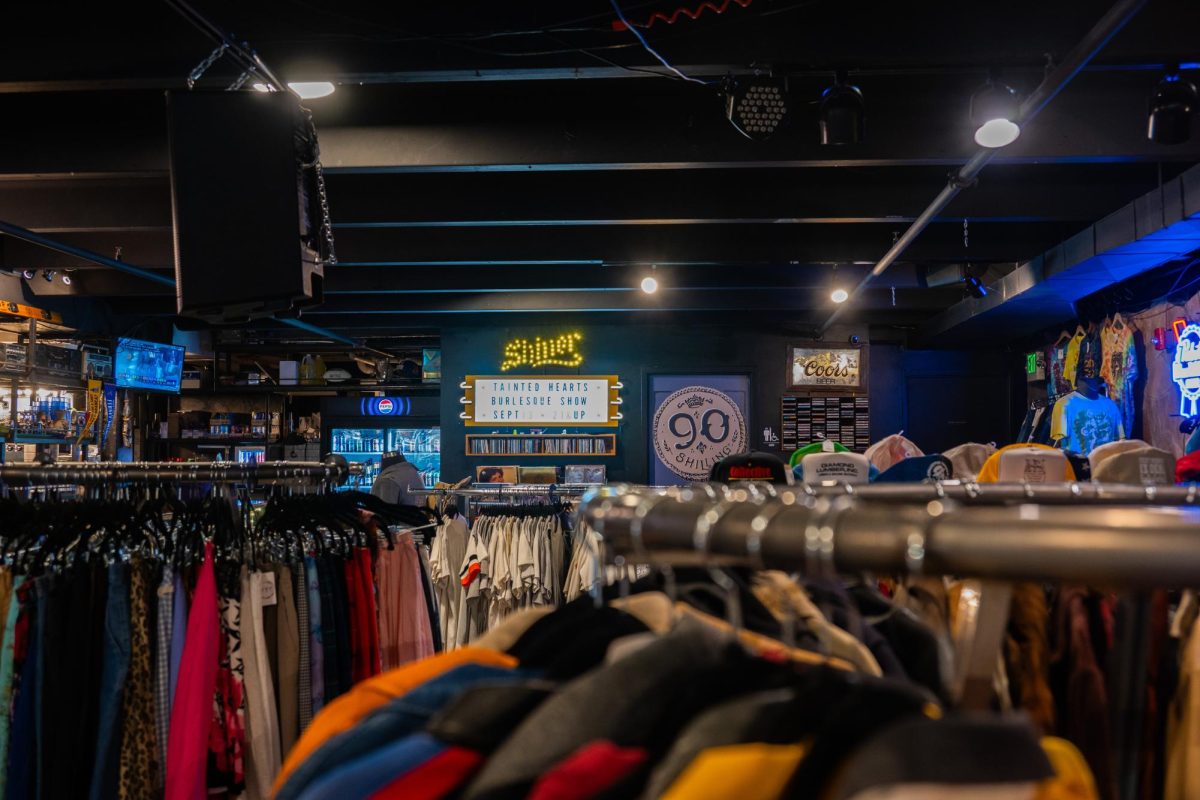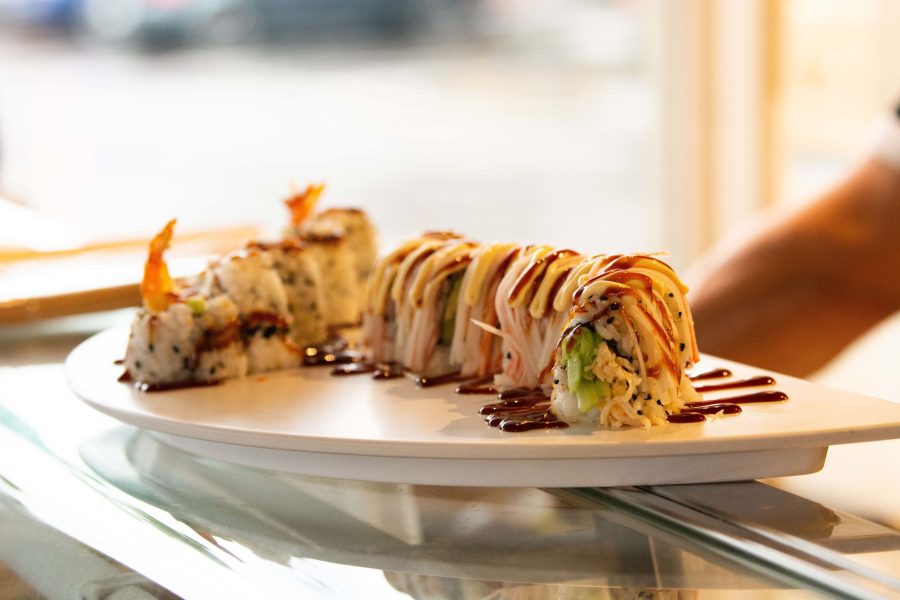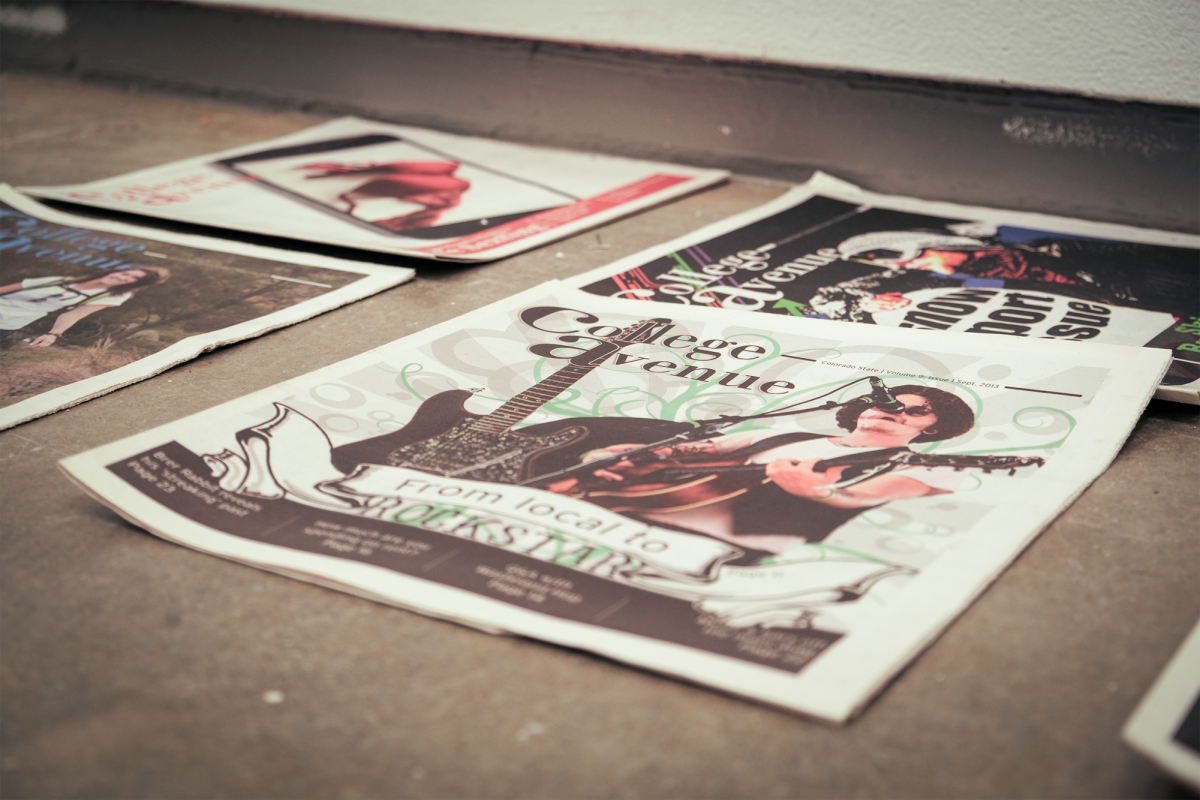Jeff Nanbara and Adam Schager have been the owners and operators of Jaws Sushi since it’s opening in August 2013. Since then, they have not only won several Best of CSU awards but also garnered a community of intrigued and hungry customers. I sat down with Nanbara and Schager to discuss the restaurant itself, the sushi culture in Fort Collins and the importance of fresh ingredients in sushi.
Jeff Nanbara and Adam Schager, owners of Jaws Sushi
Q What has working in the sushi industry been like for you?
Nanbara: “It’s fun. I mean, that’s the basic reason why we started all of this: to have fun doing it. Instead of hating to go to work, we wanted to look forward to going to work and having fun … working with cool people and being able to do our own thing. It wasn’t as stressful and stress-related. You know we are busy, and it has its stresses, but you’re not dreading to come to work. It is still pretty fun. You get to create things and include all the people we work with. Everybody helps come up with ideas or brainstorm stuff.”
Q What is the sushi culture like in Fort Collins?
Schager: “It’s also going from having a very traditional style. Like if you were to go visit Nemo. He’s a very traditional Japanese man that does it in the style he was taught. But for us in America you can adapt to flavors, tastes, what customers like. So that is why you get those people that like the fusions or for you to try outrageous new things because you can go from traditional to all the way out there. People like that variety. Especially in Fort Collins with how many restaurants there are.”
Q What is the importance of having fresh ingredients?
Schager: “Because people consider it a luxury. Sometimes people consider it more sophisticated of a meal, and you don’t want to utilize inferior product. For us, the big thing is remaining consistent, so being able to find the high-quality fish and ingredients that we like. Like our yellowtail that comes out of Japan; we know it retains its color, we know that it has our favorite flavors, it’s consistent. And when people come back (repeatedly), they don’t want the flavors to change too much. If you went to your favorite restaurant and the dish was a little different every time you probably wouldn’t be like that. But high-quality ingredients people tend to notice.”
Q It’s not too hard to get fresh fish out here?
Schager: “No, it’s really not. Our biggest supplier, Northeast Fish, is based out of Denver and they have been around since the ‘80s. A lot of the restaurants in town use them and they have not only created relationships with the airlines but with the fisheries so when they get something bad, they can tell that fisherman they are not accepting it. We even get Alamosa seabass from Alamosa, Colorado. That’s aquacultured in Colorado, shipped up to Northeast where they get it all set up for us. They know what they are doing as well. It’s good to have a purveyor that you can trust and that’s one that we can.”
Q Is it difficult in a land-locked state?
Schager: “The bad thing is we are in the middle of the United States. The good thing is we are in the middle of the United States. We can source stuff off Maine, like Maine lobsters, or soft-shell crabs from the East Coast versus getting tuna off the West Coast … you know, wherever. Our best salmon are the ones we get out of New Zealand that are flown straight into DIA … And even, then it is a matter of preference, whether you like the wild salmon versus the craft salmon … But it’s different even from fish to fish. For us, it makes virtually no difference if we were in California or not.”
Q What are your favorite items?
Schager: “Personally, just sashimi. Just the fish, because you get to taste the flavors, you get to feel the textures mouth-feel wise and each one is different. I like to have the variety of going from tuna or salmon or yellowtail which is very buttery and savory all the way to mackerel with is very fishy and salty. I think that’s the best way to learn your fish.”
Nanbara: “Tuna. From the time I was a kid growing up my parents would buy tuna and we would have special meals. Hot rice, fresh tuna cut up and just go to town. To this day when I sit down and eat, nine times out of 10 it is just tuna sashimi and a bowl of rice and I’m happy as can be. Given everything that we have here, and I’ve tried here and whatnot it still comes back to tuna.”
Q What are your hopes for Jaws in the future?
Nanbara: “Just keep doing what we’re doing … It’s hard to imagine any too far down the line as far as whether we expand, whether we try and open a second spot. It is tough enough to manage one, I can’t imagine doing two. You really gotta have a lot of crew that can handle it that can branch out to that point. … People move on or graduate or whatever life takes your way, so it is tough to manage in that respect. But for now, it’s (to) do what we do, keep making what we got better and efficient.”
Austin Fleskes can be reached at collegeavenue@collegian.com or on Twitter @Austinfleskes07.
































